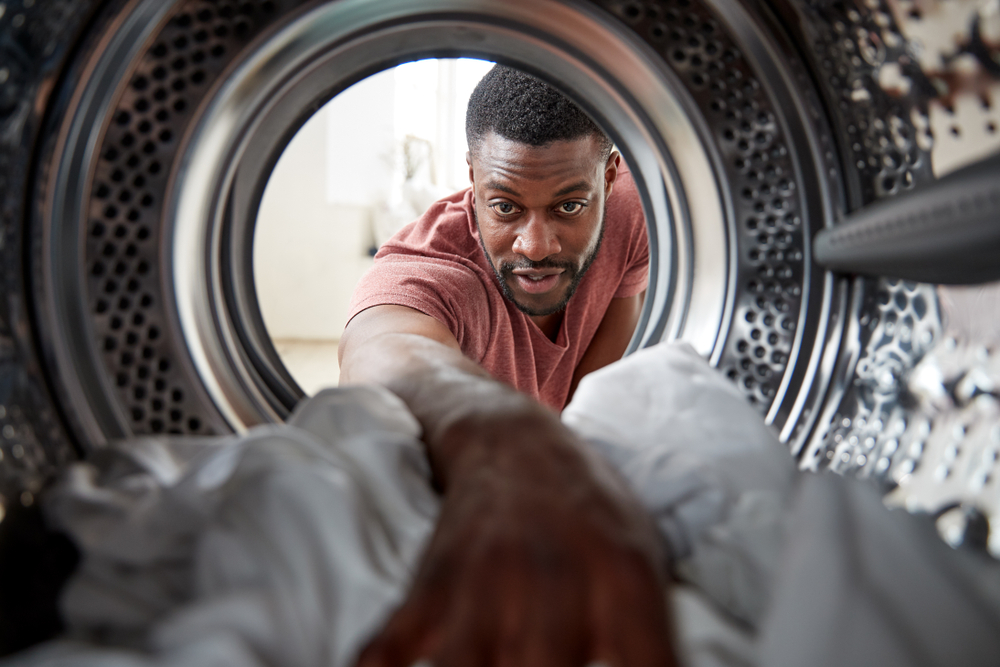A fridge that’s lost its chill. A washing machine that isn’t keeping a clean sheet. These are issues that many homeowners and renters face with their white goods. It’s frustrating, and it begs the question: should you try to repair your machine or is it time to get a new one?
Deciding what to do depends on different factors, including its age, its average lifespan and more.
Read on to find out what to consider before making your decision on repairing or replacing.
When should you repair a broken fridge or other white goods?

When any of your white goods struggle to serve their purpose, it’s time to look at getting maintenance or repairs. Your white goods are meant to make your life easier – if they aren’t working to full capacity, it’s always our advice to tackle any problems sooner rather than later.
Having regular maintenance and lighter repairs prevents a problem becoming unfixable.
Signs that your fridge needs repairing:
- Food spoils before the expiration date
- The back of the fridge is hot to the touch
- The fridge is sweating — excessive condensation on either the inside or outside of the appliance
- There’s an increased build-up of frost in the freezer
- It’s become loud — a consistent hum or buzzing
Signs that your washing machine needs repairing:
- The drum won't spin at the end of the cycle
- The machine still works but the water hasn't drained
- It's become excessively noisy
- It’s not washing your clothes or leaving oil stains
Can a white goods appliance be too old to repair?
A final point to consider when it comes to deciding whether you wish to repair something or just buy new is the average lifecycle of most white goods.
You’ll likely want to repair a newer machine or device.
Older white goods will not only be more difficult to repair, but it’s also likely finding spare parts or aligning the technology to the modern-day advancements will prove to be more hassle than its worth.
As a rough guide, the average lifespans of the most common white goods are:
- Fridges — 9-13 years
- Washing machine — 21 years
- Dishwasher — 12 years
- Cooker — 13-15 years
If your white good is covered by Domestic & General, you can easily book a repair in My Account. If you don’t have a plan, it’s also simple to get a quote.
What’s more, if our qualified experts determine that your product cannot be repaired, we will replace it with one that has the same or similar specifications.
When should you replace a broken fridge or other white goods?
There are always exceptions to every rule, but there’s a ‘rule of thumb’ to consider when it comes to replacing expensive items, be it a car, a television or a white good.
This idea is called the ‘Half and Half’ rule. The principle is if it is more than halfway through its lifespan or it will cost half as much to repair as to replace, it is better to replace.
Repairs are always the first port of call, but if you decide on buying a new machine instead, you could consider donating your old white goods through the Recycle Now charity.
Our blog is loaded with more related articles

Fridge freezer tips
Common fridge freezer faults and how to fix them
If your fridge isn't working properly, there are some things you can do to check for faults. Read our guide on common fridg...
Read more

Tumble dryer tips
3 ways to fix your tumble dryer
There are number of issues you might have with your tumble dryer, we have picked out the top 3 common faults and how to fix the...
Read more

Washing machine tips
5 ways to fix your washing machine
Always make sure that you switch off the electric and water supplies to your washing machine before you start any maintenance a...
Read more
